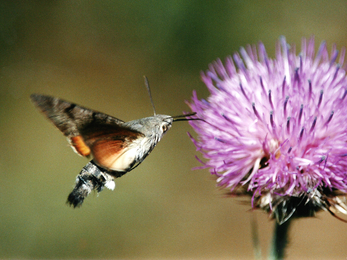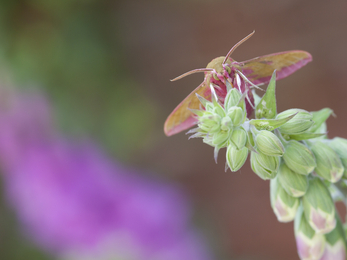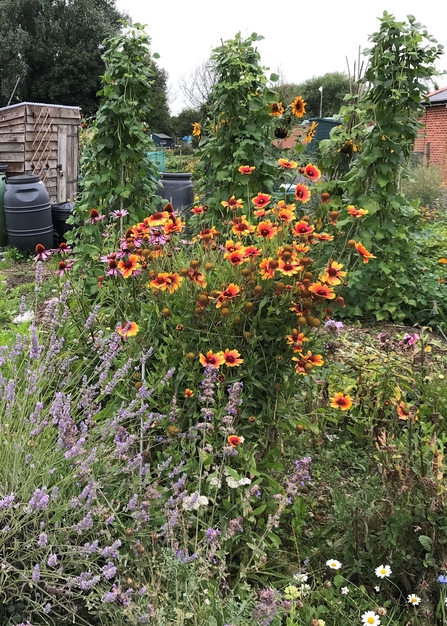Welcome to the August edition of our wildlife-friendly gardening blog.
July’s damp, cool weather was certainly a contrast to June’s scorching conditions. I’m very grateful, however, that the waterbutts have refilled and that we haven’t experienced the devastating temperatures felt in southern Europe.
In the wildlife garden this month, look out for the beautiful humming-bird hawk-moth. A summer visitor from southern Europe and north Africa, whose numbers vary year to year depending on weather conditions. With its hovering flight and long tongue, this amazing daytime flying moth is sometimes mistaken for a small exotic bird!
Cinnabar moths are also ‘out and about’ this month. Their larvae are just one of many species, including some rarities, which rely solely on the leaves and stems of ragwort for food. Ragwort flowers are an amazing source of pollen and nectar for a variety of insects, including butterflies, beetles and solitary bees. Frequently removed from fields and paddocks, ragwort can pose a health threat if grazed by livestock. In a garden or wild space, however, it is an amazing foodplant supporting over 200 species - so please think before you 'weed’.
Also on the wing is our species of the month, the holly blue butterfly. In Dorset it is warm enough for this species to have two generations a year – so the ones we are seeing now are the offspring of the adults you might have spotted earlier in the year.






